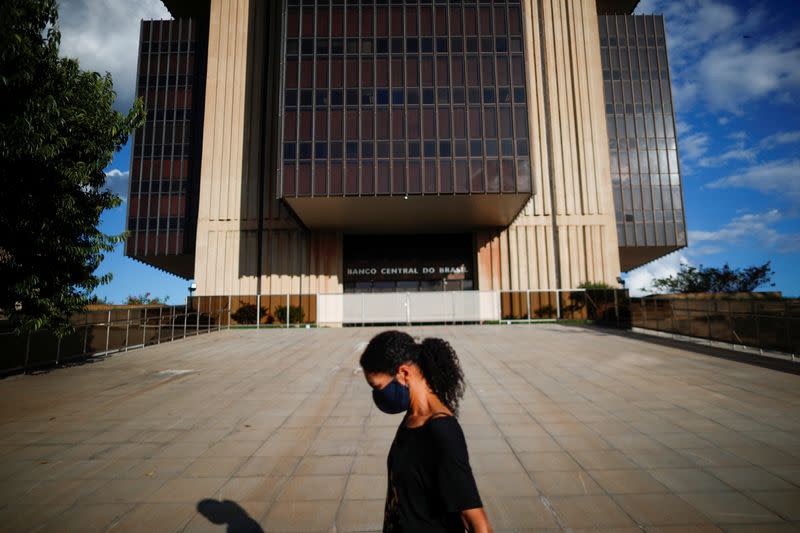Brazil posts strong job figures, signals stronger activity; inflation a concern

By Marcela Ayres
BRASILIA (Reuters) - Brazil released vigorous job market figures on Tuesday, reinforcing views of stronger economic activity at the beginning of this year but keeping the central bank wary of potential impacts on inflation.
Both the unemployment rate and formal job creation figures in Latin America's largest economy came in better than expected in their March readings, maintaining a positive trend that has excited the government and spooked policymakers.
Brazil's jobless rate stood at 7.9% in the January-March period, according to statistics agency IBGE, slightly up from the 7.8% seen in the previous rolling quarter but still the lowest for a quarter through March since 2014.
The rate was below the 8.1% expected by analysts polled by Reuters in a period in which unemployment is seasonally higher.
Separate government data showed that Brazil created a net 244,315 formal jobs in March, significantly more than the 188,000 expected in a Reuters poll of economists.
"Today's data indicate that we might see new adjustments in GDP growth projections as well as concerns about services inflation," Kinitro Capital economist Joao Savignon said. "They continue to portray a tight job market."
In the first quarter, 719,033 formal jobs were created, according to the government's adjusted series, a 33.9% increase from the previous year, with the services sector leading the way.
The average salary upon hiring decreased slightly to 2,082 reais ($405) from 2,087 reais the month before, according to Brazil's Labor Ministry, but IBGE data for the full quarter showed average wages up 1.5% on a sequential basis.
"Real wages continue to grow at a relatively solid pace, leading to services inflation remaining uncomfortably high," Pantheon Macroeconomics' chief Latin America economist, Andres Abadia, said.
Brazil's central bank, which is set to make its next monetary policy decision next week, has emphasized that it is closely monitoring the dynamics of income from various surveys to better assess the degree of slack in the labor market and its potential impacts on service sector inflation.
One of the bank's board members, Ailton Aquino, told reporters on Tuesday that services inflation was still a point of attention and the fresh job market figures would be taken "very seriously" by the monetary policy committee.
The central bank has lowered its key borrowing rate by 50 basis points at each of its last six meetings, to 10.75%, and signaled in March another cut of the same magnitude in May.
But Governor Roberto Campos Neto recently said policymakers could no longer provide guidance on policy decisions due to increased uncertainties, with some believing the easing pace may be reduced.
Finance Minister Fernando Haddad last month urged policymakers not to be frightened by employment data when assessing room for further rate cuts, while signaling the government may bump up its forecast for 2024 economic growth.
On Tuesday evening, Haddad told reporters in Sao Paulo that Brazil is "combining job creation with very controlled inflation in these first months of the year," adding that there is the need to "match the interpretation of these numbers to what they actually represent to Brazil."
President Luiz Inacio Lula da Silva, who has previously criticized the central bank for the high interest rates and dubbed jobs creation his "obsession," cheered the latest employment figures.
"The government's been working for everyone, and we will continue to move forward," he posted on social media.
($1 = 5.1419 reais)
(Reporting by Marcela Ayres in Brasilia; additional reporting by Patricia Vilas Boas in Sao Paulo; Writing by Gabriel Araujo and Andre Romani; Editing by Andrew Heavens, Jonathan Oatis, Marguerita Choy and Leslie Adler)
